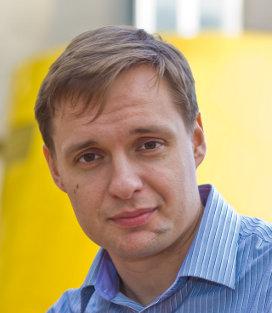
May 10, 2018
We are thrilled to share that LIDS faculty member Yury Polyanskiy is one of five EECS professors whose tenure was announced this week.
Yury joined MIT and LIDS in 2011 and has made a great impact in his time here. “I was delighted to learn of this recognition of Yury’s achievements, while not being the least surprised, as Yury’s intellectual power and seminal contributions are exceptional,” said LIDS director John Tsitsiklis. “His enthusiasm is inspiring and contagious, and it is a privilege to have him with us.”
“As a core faculty member, Yury has been a tremendous presence in IDSS from its start,” said Institute for Data Systems and Society (IDSS) director Munther Dahleh. “This is a wonderful recognition of his talent and energy.”
In her announcement, EECS department head Asu Ozdaglar shared a brief synopsis of Yury’s career and achievements so far:
Yury Polyanskiy is a star information theorist who works on information processing systems that arise in communication, control, and learning. He is widely known for his pioneering work on finite blocklength information theory. His work developed fundamental results in non-asymptotic information theory, providing tight lower and upper bounds for the capacity of a given blocklength. He also has important contributions in a broad set of areas including properties of information measures, discrete geometry and combinatorics, and statistical learning theory. The tools and relations he developed for information measures enabled him to settle long-standing conjectures in network information theory and address fundamental questions in control and high-dimensional statistics. Yury has taught the undergraduate courses Introduction to EECS (6.02) and the SuperUROP course (6.UAR). He is currently co-developing a new foundation-level class, Introduction to Data Science (6.S077). He also teaches the graduate classes Information Theory (6.441) and Fundamentals of Probability (6.436), and he co-developed a new graduate class, Tools of Discrete Probability (6.265). His awards include IEEE Information Theory best paper award, ISIT best student paper awards (twice), an NSF CAREER Award, and the EECS Jerome H. Saltzer teaching award.
Please join us in congratulating Yury on this much-deserved accomplishment — we look forward to working with him for years to come!


